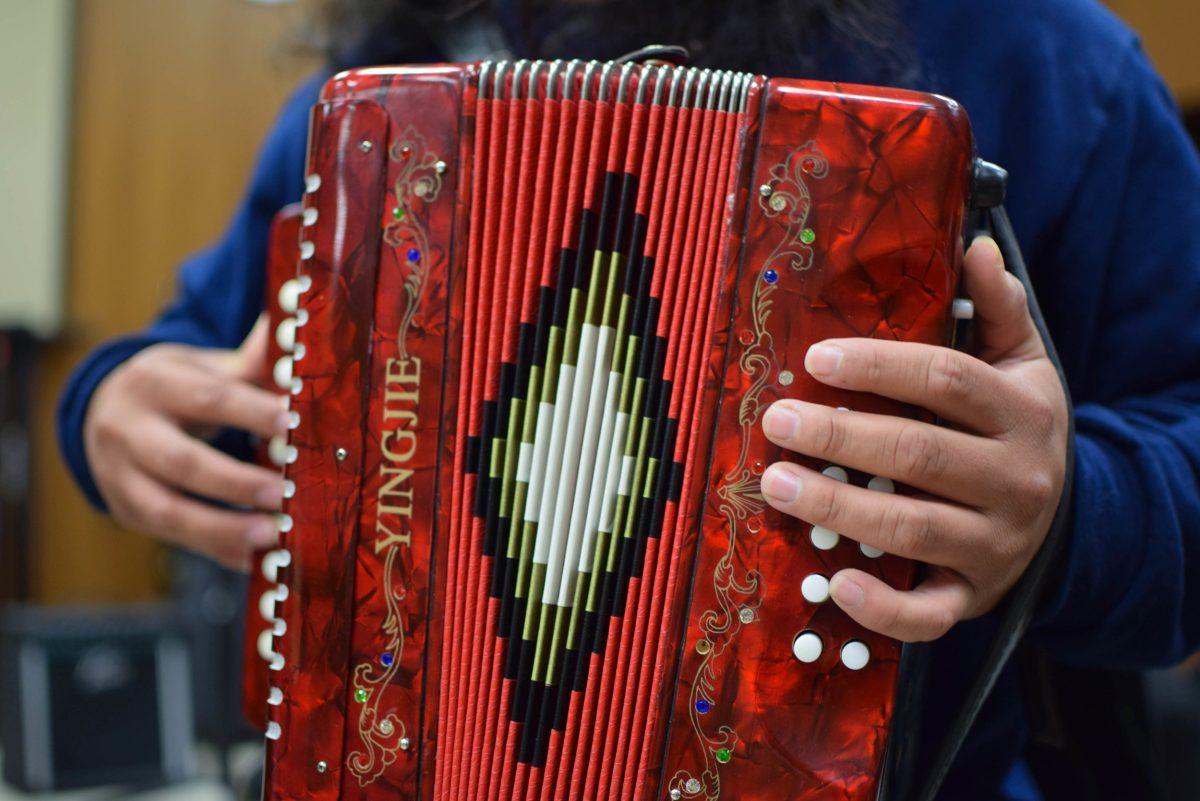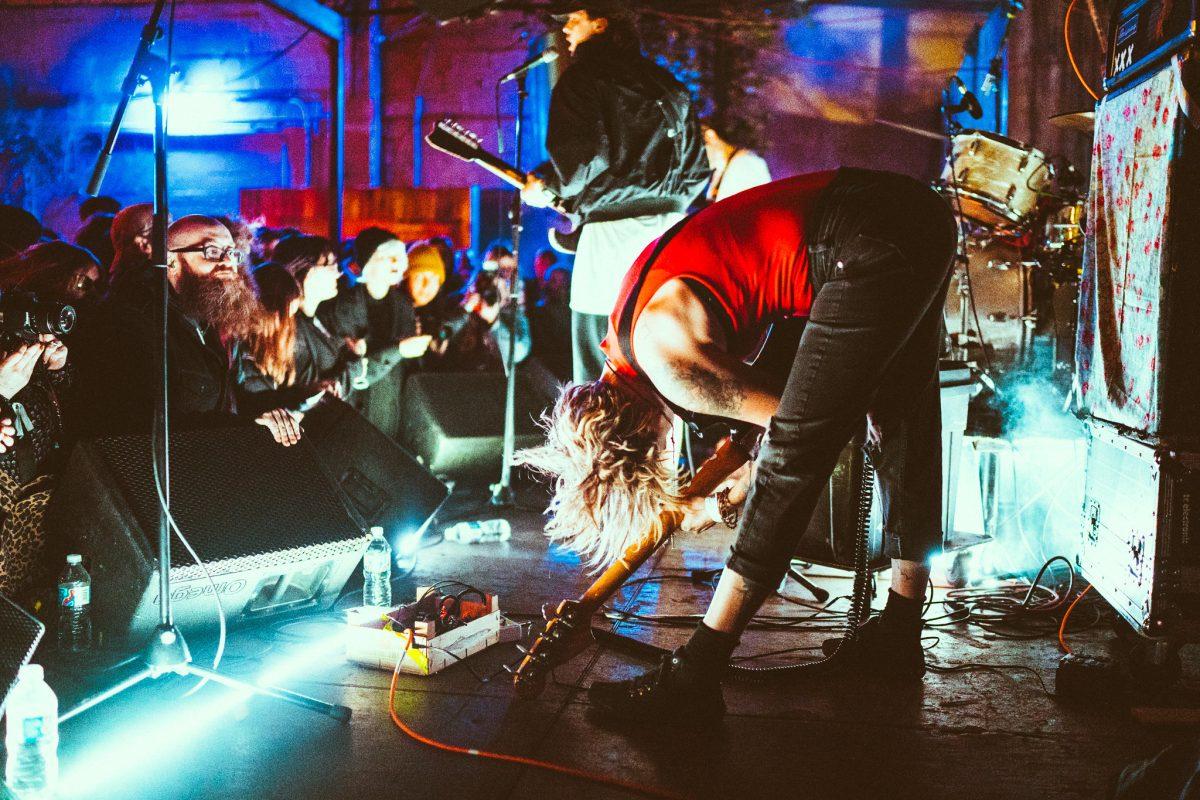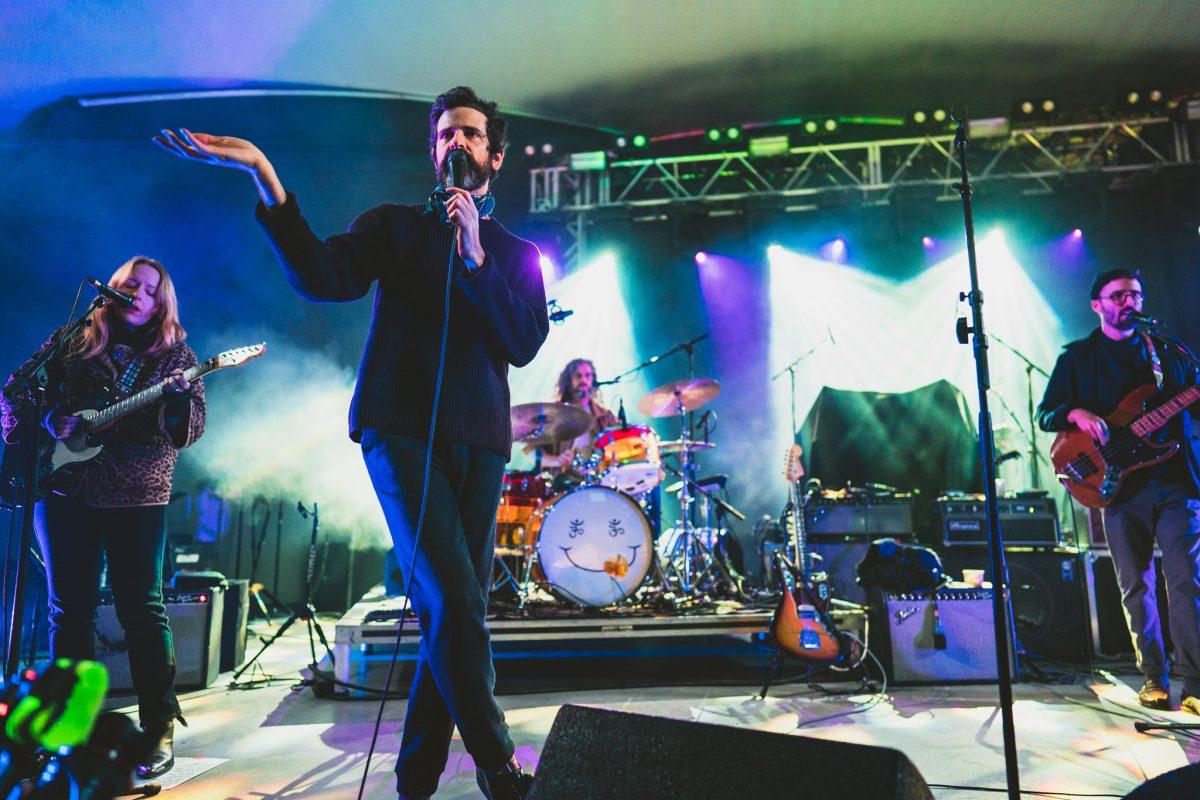Willie Nelson. Janis Joplin. Stevie Ray Vaughan. A diverse trio of superstars with one thing in common: They all have their roots in Austin. But in the 30 years since Vaughan stormed the charts with his signature brand of electrifying blues-rock, who else has emerged from this buzzing music hub? Is anybody really waiting with baited breath for the next release by Spoon, the alt-rockers whose biggest claim to fame is penning the soundtrack to the Will Ferrell dramedy Stranger than Fiction in 2006?
Story by Bryan Rolli
Photos by Tess Cagle
Many Austin advocates blind themselves to the fact that today’s musical climate is almost completely unrecognizable from the days of yore. As the city streets become more congested with starry-eyed hopefuls looking to strike gold, one disconcerting question looms: Is there actually any capital left to be made in the “Live Music Capital of the World?”
Aspiring musicians move to Austin in such staggering numbers that the city cannot possibly house them all. One glance at the weekly live listing in any local publication makes it painfully clear that venues are filled to the brim with one nameless act after another. But just like a tree that falls in an empty forest fails to make a sound, the racket stirred up by these newcomers often falls on unengaged listeners, with nothing to distinguish one act from the next.
Thanks to this earsplitting din, artists have a new, unenviable task — breaking through the equally (and sometimes more) talented clutter surrounding them. Stellar songwriting and captivating stage presence no longer cut it by themselves; listeners can find that by spending five minutes on Sixth Street. Instead, these up-and-comers have to show potential audiences why they should give a damn in the first place.
Tyson Swindell, owner and general manager of esteemed live music venue Red 7, considers this just a regular part of the music business game. “That’s the musician’s struggle. It’s like, ‘What the fuck can I do to break through to these people or to open my band up to a new audience?’ If you’re smart, at least, [those are] the things that you’re thinking about,” he says.
Pursuing dreams of fame and fortune requires thick skin and an ironclad will to persevere, of which Austin electronic artist Roger Sellers is well aware. He thinks artists moving here and expecting a meteoric rise to the top are only fooling themselves and instead need to be ready to pay their dues. “I believe that persistence and just getting used to failing is such a large part of being successful as a musician,” he says. “Just getting used to fucking failure and knowing that one flaw or one huge mistake is not the be-all, end-all. And I think that a lot of people that will just do this immediately and get popular, they’re not trained in that philosophy.”
This means dedicating hundreds, if not thousands, of hours to honing one’s craft, developing the perfect stage show and enduring plenty of glorified practice sessions masqueraded as “gigs” where the only audience member is the one working the sound board. In the midst of such vicious competition, the only way for artists beginning to ignite their careers to ingrain themselves in a listener’s brain is to become omnipresent, snatching every available open mic night, unpaid gig and lousy opening slot on another local show. In a city with so much disposable music, great live bands have become a dime a dozen. One electrifying show isn’t enough to pique long-term interest, and Austinites won’t remember anything that isn’t shoved down their throats.
Sounds simple enough, right? Play tons of shows, and make audiences remember you. But the next step can seem pretty counterintuitive: Stop playing.
Swindell warns against the dangers of becoming too available: “The number one thing that I tell musicians in Austin is to not overplay. And that is so easy to do because there’s so many cool bands here, there’s so many cool venues, and bands are constantly coming through on tour. It’s really easy to play five times a month, or six times a month, but that doesn’t do you any good,” he advises.
Instead, Swindell encourages bands to take four or five weeks off between shows to write new material, develop a more interesting theme for their live set and let audiences replenish their appetites and wallets. “We’re spoiled rotten as concertgoers,” he says, adding that the abundance of live music has desensitized audiences. “We just know, ‘Hey, there’s a show that such-and-such band is playing tonight. Ah, well, they’ll be back in two months, let’s be honest.’”
Artists in Austin face a unique paradox. First, they have to play nonstop to build a fan base, but then they have to remain “fresh” by cutting back on their live performances. Just one problem — bills don’t pay themselves, and musicians still have to find ways to make ends meet in their downtime.
For Sellers, the solution lies in leaving Austin. “This is a great town to be doing well in. I can sincerely believe that. But once you do, you gotta get out of it. There’s other places, and there’s only so much this town can do for you locally. It can get you started, and I think after that you gotta figure something else out,” he says.
By this point, Austin’s reputation precedes itself. The self-appointed “Live Music Capital of the World” lures countless artists into its confines, each looking to triumph where so many have failed before them. But does this city even deserve such a prestigious title anymore? Sellers doesn’t think so. “It’s the ‘Live Local Music Capital.’ There’s no fuckin’ doubt about it. This place has an unbelievable amount of venues here, and they’re always booked, because people want to get booked,” he says.
Thanks to this glut of performers, Austin operates by different standards than most other music meccas, such as New York and Los Angeles, and “fame” is a relative term. Often artists who find success here have trouble breaking nationally, or even regionally, and vice versa. “We’re in this weird, cloistered musical world in Austin that you don’t really get to see which bands are actually doing that [making it big], because there’s so much going on here that a band that has actually broken through on the national scene … is playing to 20 people somewhere in Austin. But somewhere else, they’re playing to 150,” Swindell says.
Sellers thinks the City’s reputation for live music stigmatizes local artists and trivializes the value of high-quality recordings. “What I hear most of the time locally on a record is a band doing what they do live, and then having a producer try to make them sound good,” he observes. “It’s very rare that I hear really incredible artistic merit in an album that’s local. And maybe that’s why local albums don’t sell, because people think it’s gonna be bullshit anyway.”
As negative as this all may sound, Austin is far from an impenetrable fortress of apathetic concertgoers, middling musicians and tightfisted venues. The city has maintained its status as one of the world’s premiere music hubs for a reason, namely all of the resources it has to offer aspiring artists.
“There’s a hidden tool every couple steps of the maze or whatever, and if you’re going the right direction, you’re picking up the right stuff, then [it will] probably be easier for you to get to the next level,” Swindell believes. He still considers South By Southwest one of the best learning opportunities available, despite the myriad claims of over-corporatism and legendary artists stealing the spotlight. “You can go to seminars about how to make your band more marketable. You can learn from the best in the industry, and those are things that I suggest bands take advantage of while they’re here, ‘cause they’re invaluable. You can’t do that other places,” he says.
Sellers believes Austinites still have the ability to acknowledge and appreciate genuine talent. “People are understanding of musical brilliance in this town. People understand what real music is here, I think, a lot more than other places. Bullshit can’t really swing by in this town like it can in Houston, it can in Dallas and San Antonio. It just won’t work here,” he claims.
Will Kauber, guitarist of Austin math-rock/folk hybrid Hikes, takes a Darwinian approach to the extreme competition among musicians in the city. “I think it’s really positive that the scene’s oversaturated or whatever, because it means that the ones that rise to the top truly have [been] put through the evolutionary rung,” he says.
Stardom is no guarantee, especially in a city where every voice is clamoring to be heard. But if the bar for success keeps getting higher, one can rest assured knowing that those who do rise to the top have endured their fair share of trials and deserve their newfound success.
After all, pressure creates diamonds.












































